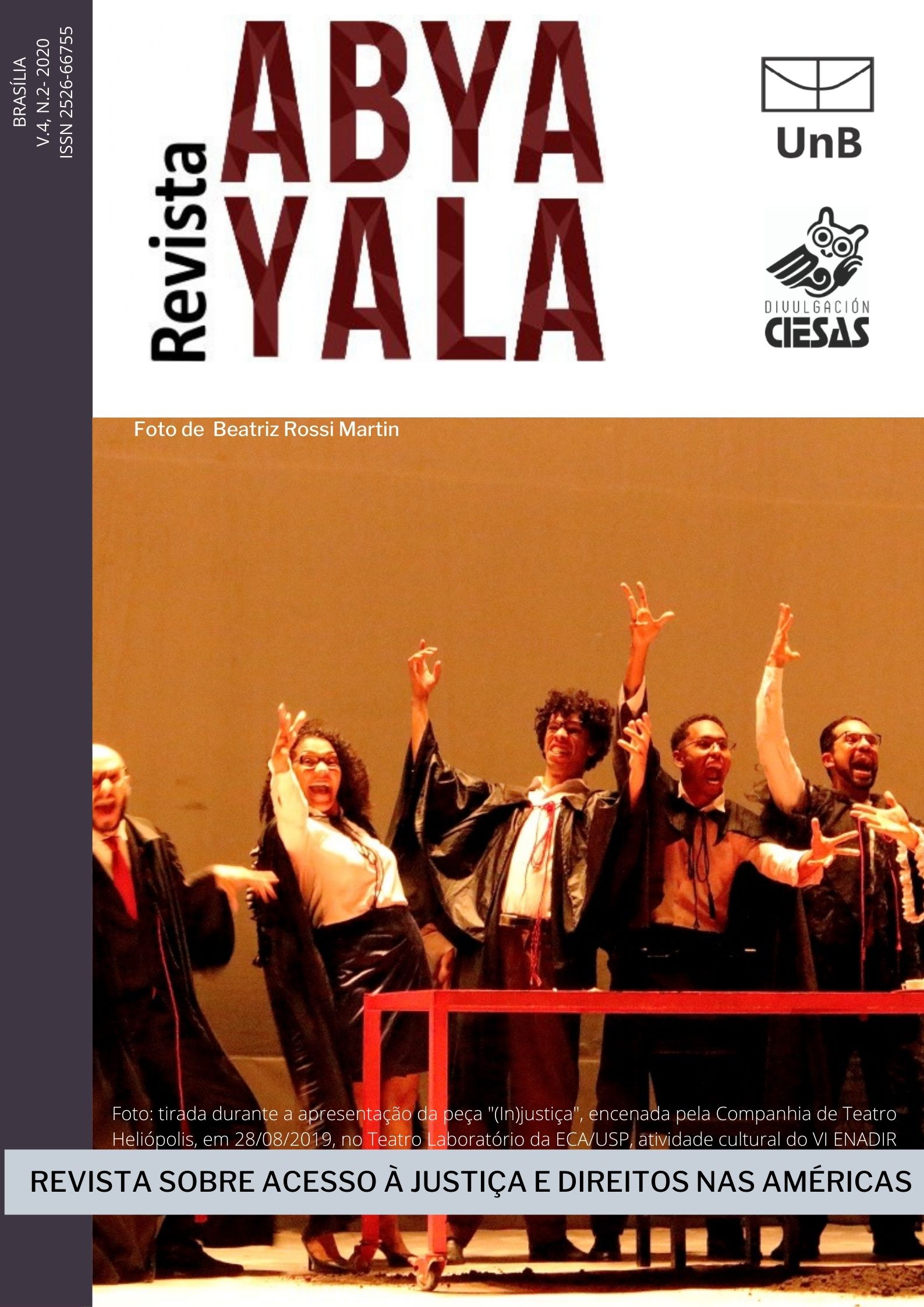HARM REDUCTION AND STREET POPULATION IN FRANCA: pipes and cans
DOI:
https://doi.org/10.26512/abyayala.v4i2.34806Keywords:
Street Population; Harm Reduction; Pipes; Action-Research.Abstract
The article aims to understand the possibilities of Harm Reduction practices based on the question of how the pipe / can constitutes the relationship of the homeless person with crack. The experience reported here comes from holding, through the Núcleo de Cidadania Ativa extension, pipe workshops with users of Centro POP de Franca, in partnership with Consultório na Rua. Such workshops start from the assumption that what crack consumption is ritualized in a stereotyped sequence of gestures, endowed with a subjective meaning, to which proposals for self-regulation in the relationship between the individual and the substance can be constructed. For that, René Barbier's Existential Action Research was used. As a result, we observed the manifestation of six differentiations between the use of a pipe or a can for crack consumption: effects, notions of health, availability of tools, relationship between individual-crack, consumption space and production of "resin". Finally, we found that bringing pipes and cans to the foreground is a strategy for building bonds between professionals and users; it allowed the team of the Consultório na Rua to get closer to the practices that permeate the consumption of crack and possibilities to build notions of health in this ritual; that the production of pipes has a creative quality, and in dialogue with the reuse of discarded materials.
References
AGAR, MH. Into that whole ritual thing: Ritualistic drug use among urban American heroin addicts. In: DU TOIT, B.M. Drugs, rituals and altered states of consciousness. Rotterdam: Balkema, 1977, p 134-148.
BARBIER, René. A Pesquisa-Ação. Tradução de Lucie Didio. Brasíli: Liber Livro, 2007.
CENTRO DE CONVIVÊNCIA É DE LEI. Cultura, juventudes e redução de danos. São Paulo: Córrego, 2015.
CONSELHO FEDERAL DE MEDICINA. Diretrizes gerais médicas para assistência integral ao dependente do uso de crack. Brasília : CFM, 2011.
FERNANDES, J. L.; PINTO, M. El espacio urbano como dispositivo de control social: territorios psicotropicos y politicas de la ciudad. 2004.
GRUND, J.-P.C. Drug Use as a Social Ritual - Functionality, Symbolism and Determinants of Self-Regulation. Rotterdam, Instituut voor Verslavingsondersoek (IVO), Erasmus Universiteit, 1993.
JORGE, Maria S.B, et al. Ritual de consumo do crack: aspectos socioantropológicos e repercussões para a saúde dos usuários. Ciênc. saúde coletiva [online]. 2013, v.18, n.10, p.2909-2918.
MACHADO, Vier, et al. Políticas Sobre Drogas no Brasil: a Estratégia de Redução de Danos. Psicologia Ciência e Profissão, 2013, v. 33, n.3, p.580-595. Disponível em: <http://www.redalyc.org/articulo.oa?id=282028779006> ISSN 1414-9893> Acesso em: 30 jul. 2019.
MACRAE, E. A Abordagem Etnográfica do Uso de Drogas. In; MESQUITA, F. & BASTOS, F. (Orgs.). Drogas e Aids : estratégias de redução de danos. São Paulo: HUCITEC, 1994. p. 99-114.
MACRAE, E. Antropologia: aspectos sociais, culturais e ritualístico. In: SEIBEL, S. D. ; TOSCANO Jr. A. Dependência de drogas. São Paulo: Atheneu, 2001. p.25-34. Disponível em <http://www.neip.info/downloads/t_edw10.pdf> Acesso em : 27 jul. 2019.
MACRAE, E. A subcultura da droga e prevenção. Salvador: CETAD, UFBA, 2003. Disponível em: <http://www.neip.info/downloads/t_edw5.pdf> Acesso em: 27 jul. 2019.
MILLER, Daniel. Trecos, roços e coisas: estudos antropológicos sobre a cultura material. Tradução: Renato Aguiar. Rio de Janeiro: Zahar, 2013.
ROGERS, Carl R. Tornar-se Pessoa. Tradução: José Manuel do CArmo Ferreira e Alvamar Lamparelli. 5. ed. São Paulo: Martins Fontes, 1981.
RUI. T. Isso não é um cachimbo: sobre usuários de crack, seus artefatos e suas relações. Áskesis - Revista dos Discentes do PPGS/UFSCar , São Carlos, v. 1, n. 1, jan./jul. 2012, p. 32-45.
VIANNA, Catarina; RIBEIRO, Magda. Sobre pessoas e coisas: entrevista com Daniel Miller. Revista de Antropologia, São Paulo, v. 52, n. 1, jan./jul. 2009, p.415-439.
Downloads
Published
Issue
Section
License
Copyright (c) 2020 Abya-Yala: Journal on Access to Justice and Rights in the Americas

This work is licensed under a Creative Commons Attribution-NonCommercial 4.0 International License.
The sending of contributions to Abya Yala implies the assignment of copyright and publication to the Journal, observing the Attribution-Non-Commercial 4.0 International (CC BY-NC 4.0) adopted.
The content of the texts submitted to and published by the journal will be the sole responsibility of their respective authors.
Copyright: https://creativecommons.org/licenses/by-nc/4.0/deed.en








